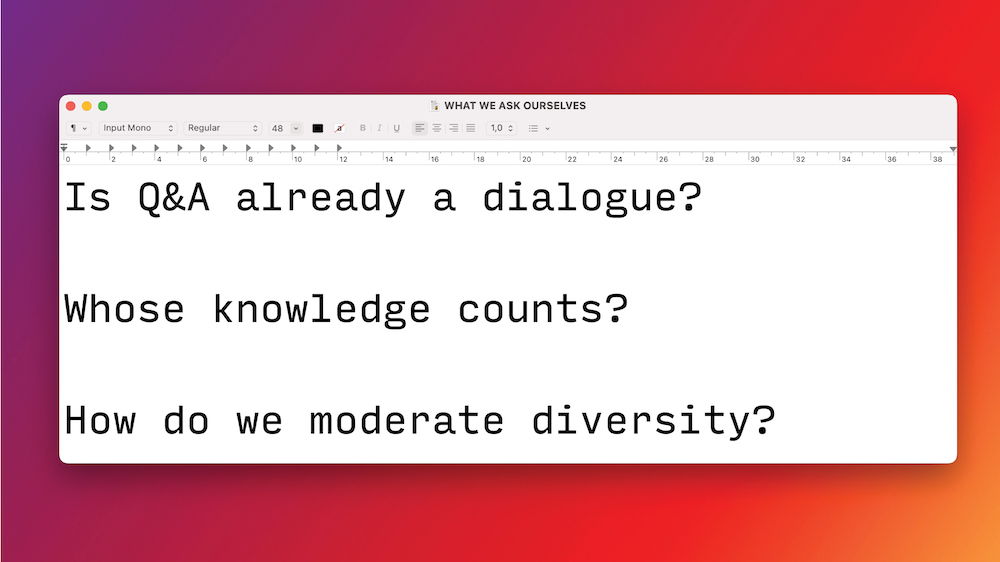
WHAT WE ASK OURSELVES
Online discourse series in the context of the VIDEONALE.19 prolog
During the preparations for VIDEONALE.19, we took a self-critical look at what we do as festival makers. We asked ourselves what we are actually doing, what we wish for, what we claim to be doing, and what has been fulfilled in the past, and what has not. We would like to discuss some of these questions with you online. Hear what you think about it, what you have already done differently yourself, and tell you about our plans for the 19th edition of Videonale. The three questions are: Is a Q&A already a dialogue? (Or could there be more?); Whose knowledge counts? And: How do we moderate diversity? Come by online and discuss with us! Sign up via the calendar further down.**
Dates:
Wed, Jan 25, 6 - 8 pm | Online
Is Q&A already a dialogue? (Or couldn't there be more?)
We have come across various platitudes and assertions in our reflections on VIDEONALE.19. One of them is that festivals of experimental film and video culture are places of dialogue: "True!", we said, and "Yes, somehow they are" and then "Somehow they are not". We asked ourselves who is actually talking to whom, about what exactly, and in what way. In short: Is a Q&A in its current setting already a dialogue about art, or could there be more?
Wed, Feb 8, 6 - 8 pm | Online
Whose knowledge counts?
This event is about the question of knowledge that is negotiated and produced in events of film and video culture, more generally in the context of art events. Whose and what kind of knowledge is valid and who actually needs to be educated? What knowledge do we exclude or not really allow to come into its own - and why? And what potential with regard to the impact of art in society and the emergence of new knowledge is actually being squandered as a result?
Tue, March 7, 6 - 8 pm | Online
How do we moderate diversity?
The video artworks in the Videonale exhibitions are as diverse and varied in their subject matter as their creators. Their artistic work has its starting point in the most diverse cultures or is based on a transcultural perspective. The majority of the Videonale's visitors live in Germany and also live here in the most diverse cultural contexts. In the moment of watching, inter-cultural experiences occur. How can we counteract the trivializing classification of what is seen into one's own cultural understanding, and thus the eternal repetition of cultural stereotypes? How much framing and contextualization is needed without taking art's breath away? And if so, in what way? And what role do the artists themselves play in this context?
